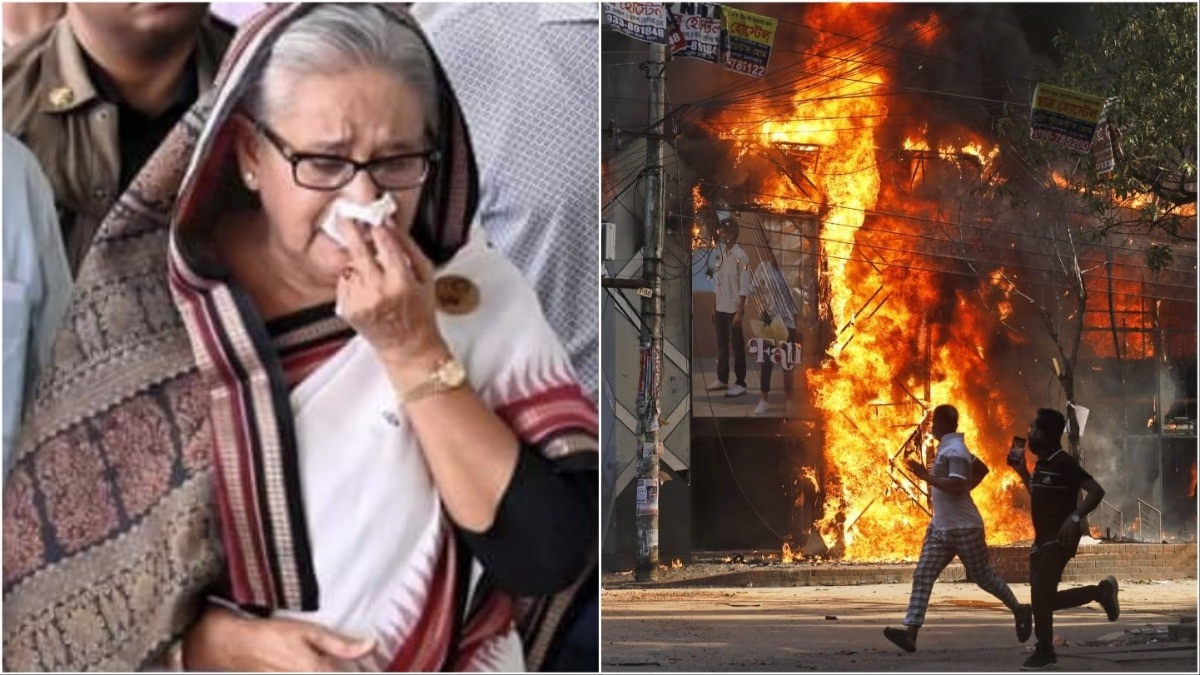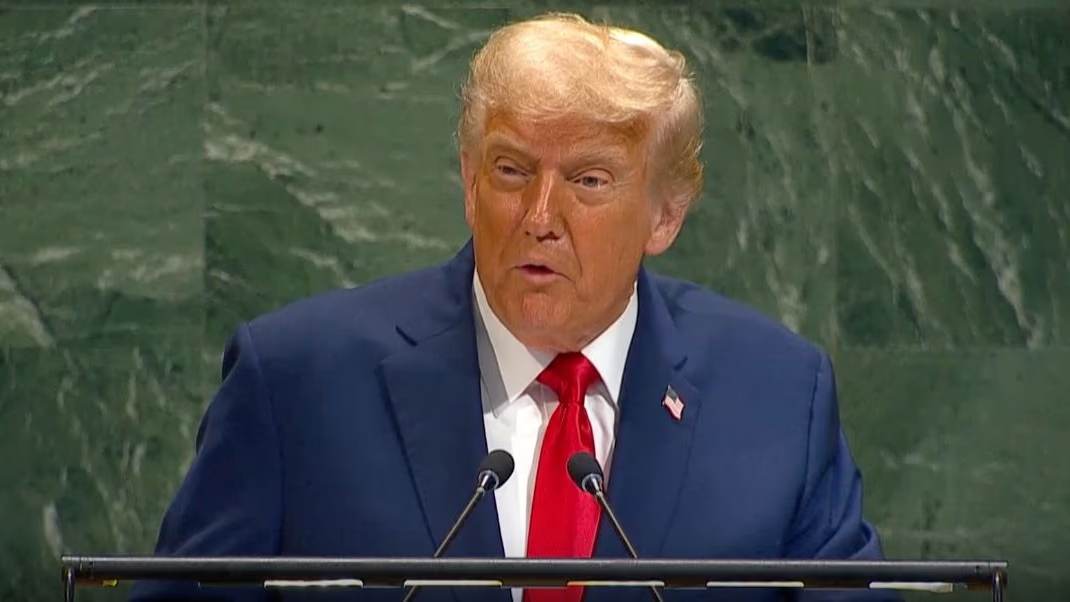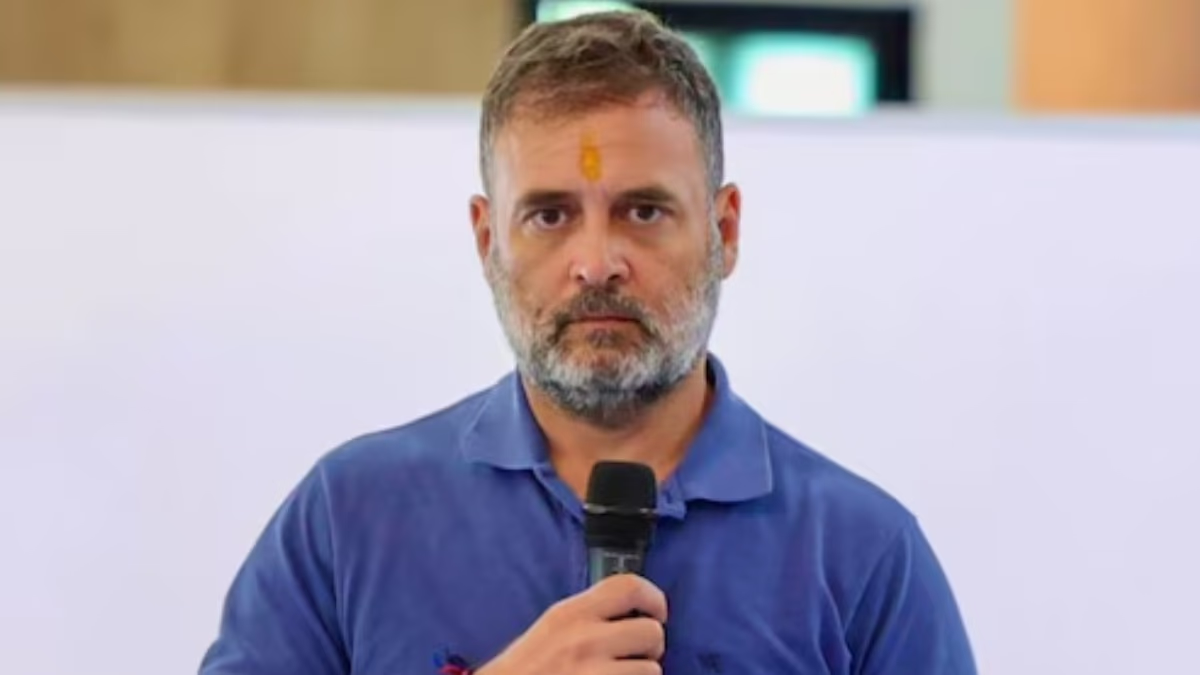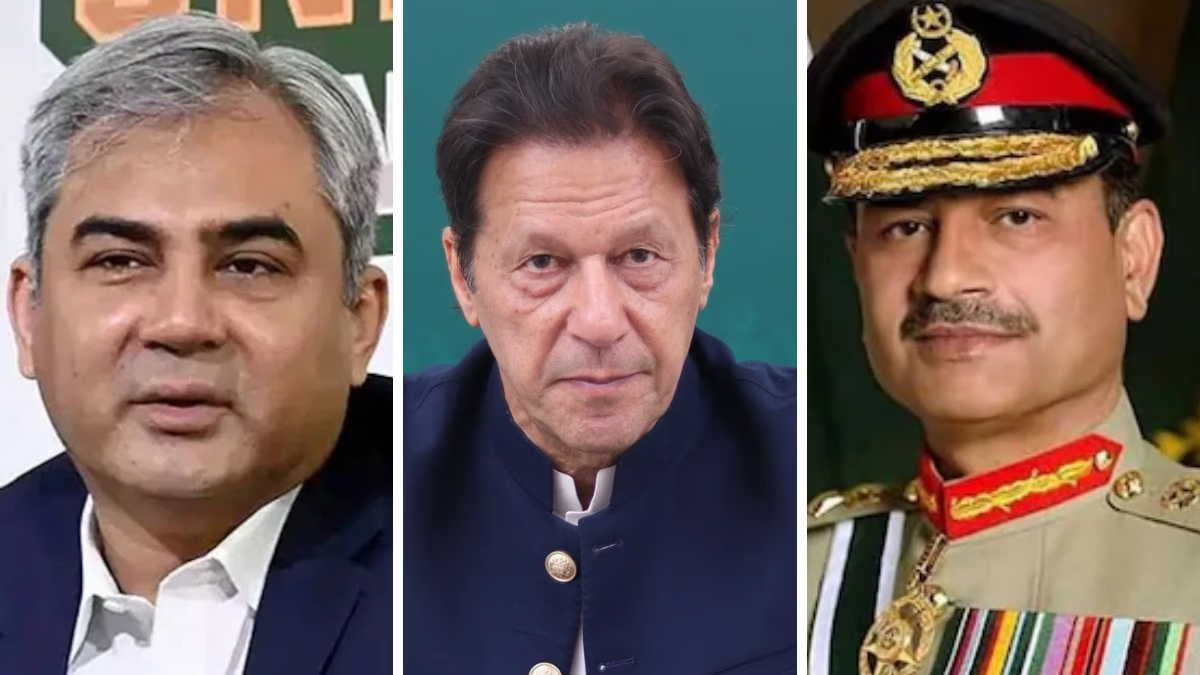Renowned political expert on neighboring country Pakistan, Dr. Charles H. Kennedy, wrote a famous article titled 'A User's Guide to Guided Democracy.' In this article, he humorously outlined 10 Steps that could help any new ruler in Pakistan to solidify their rule.
Specifically, these steps were almost always used by all of Pakistan's military dictators. This article was based on Pakistan's history starting from 1947, covering all the military coups that occurred in Pakistan in 1958, 1978, and 1999. Interestingly, all military rulers used nearly identical strategies after their coups.
These strategies included harassing political opponents, tampering with the constitution, manipulating the government system, and using laws solely for self-protection. Naturally, the Pakistani public remained frustrated with these military regimes, but Pakistan is still an example of a country where multiple coups have taken place, and the fear of another remains.
Why do coups happen?
The question arises: why do coups occur despite understanding the outcomes of military rule? Today, this question is more relevant as another neighboring country, Bangladesh, once part of Pakistan, experienced another coup. Bangladesh's history, like Pakistan's, has been marked by coups. On Monday, former Bangladeshi PM Sheikh Hasina had to resign amid violent protests and even had to flee the country. The current situation of former PM Sheikh Hasina and Bangladesh mirrors that of other South Asian countries, including Myanmar, Afghanistan, and Sri Lanka. The question is why democracy fails despite the demand and need. Why do coups happen so easily?
Why is democracy not established in Pakistan?
Returning to Pakistan, they have often boasted about democracy, but the reality is that since the partition from India in 1947, the military has been involved in power, and this neighboring country has spent decades under military rule. To date, no Prime Minister in Pakistan's history has completed their term, or they were not allowed to. Either the military has been in power, or when in power, the military runs such a gambit that even officials have to operate under their influence. Since its independence, the military has asserted its dominance so that the people of the neighboring country cannot escape it.
How did the military establish dominance in Pakistan?
In a BBC report, Ayesha Siddiqa, Senior Fellow at the Department of Military Studies at King's College London and an analyst of Pakistani affairs, says, 'Security has always been the most crucial issue for Pakistan. This is why the military gained importance from the start and gradually reached a position where it could influence politics. After World War II, the military became very significant as national security became the most important issue. After that, the military became an autonomous institution.'
Read Also: 15 years in power, left the country in 45 minutes... The complete story of Sheikh Hasina's ousting in Bangladesh
The military has always been influential in power
Explaining the power of the military in Pakistan, Professor Ajay Darshan Behera of the Academy of International Studies at Jamia Millia Islamia says, 'Until 1951, British generals led the Pakistan Army. After that, the command was handed over to General Ayub Khan. While there was a delay in writing Pakistan's constitution, the military strengthened its grip on the country. Since Pakistan has been directly under military rule for long periods, democracy could never flourish.'
Signature emphasizes security reasons to impose dominance
Thus, Pakistan used security reasons to justify its dominance over the country and then reached a position of directly intervening in power. Political leadership in Pakistan has always been dependent on the military, so the separation of military and political leadership never happened. The first military coup in Pakistan happened in 1956, led by General Ayub Khan. After that, the civil-military alliance came into existence, with bureaucrats holding substantial power. As a result, bureaucrats, the military, and intelligence agencies emerged as powerful forces.
Interference in economic matters by the military
This alliance resulted in other democratic institutions in Pakistan never developing, and the entire country became entangled in military rule. After interfering in politics, the military then extended its control over economic matters. Here, the military is also a business entity and runs industries alongside agriculture. Hundreds of businesses involve direct military participation, and they also cover 30% of the government's expenditure, including the defense budget and pensions. What more is needed to control a society and a democratic system?
Read Also: Indian Rafale jets alert before Sheikh Hasina's entry...Here's the path they took to Hindon Airbase
The military's grip on foreign policy
When it comes to foreign policy, Pakistan's military has complete control over this area. This was evident during the Russia-Ukraine war, when Pakistan's Army Chief, General Qamar Javed Bajwa, did not support Russia's attack on Ukraine. Still, then-PM Imran Khan said he would not comment on this war.
When were the coups in Pakistan?
In summary, Pakistan never had the conditions for democracy to flourish. Pakistan has seen four military coups. The first coup happened in 1953-54. Then in 1958, power changed hands. A coup occurred again in 1977, and then in 1999. In 1999, after the Kargil war, a coup took place in Pakistan. At that time, the then Pakistan Army Chief, General Pervez Musharraf, ousted Prime Minister Nawaz Sharif and seized power.
Bangladesh's history is not different from Pakistan's
Talking about Bangladesh, its history is not different from Pakistan's; instead, it has experienced similar situations. Although it separated from Pakistan in 1971, its ways were still influenced by Pakistani methods. Following Bangladesh's independence in 1971, the government lasted only for the first five years. After separating from Pakistan, Bangladesh held its first general election on March 7, 1973. Awami League, led by Sheikh Mujibur Rahman, won the elections overwhelmingly, but with this victory came a tyrannical situation, creating resentment among the public.
When were the coups in Bangladesh's history?
On August 15, 1975, some junior officers of the Bangladeshi army attacked Sheikh Mujib's house with tanks. Mujib, along with his family and security staff, were killed in this attack. After Mujibur Rahman was assassinated in 1975, the Bangladeshi military held power for the following decade and a half. Between 1978 and 1979, presidential and parliamentary elections were held under former army chief Ziaur Rahman's leadership, but they were not free from allegations of fraud. In 1981, after Ziaur Rahman was assassinated, his deputy Abdus Sattar held general elections on November 15. The Bangladesh Nationalist Party won again with 65 percent of the vote. Hossain Muhammad Ershad, the army chief, seized power in a coup in 1982.
Military intervention in Bangladesh's power
In 1988, significant protests erupted in Bangladesh, demanding the removal of Hossain Muhammad Ershad from power. This led to the 1990 popular uprising, forcing Hossain Ershad to resign. Thus, Bangladesh has also had a lengthy history of coups due to military intervention in politics.
How did the situation with Sheikh Hasina arise?
Although Sheikh Hasina's current ousting is not called a military coup, it is said to involve opposition parties, terrorist conspiracies, and foreign interventions riding on a student movement. Sheikh Hasina had to resign in a dramatic event on Monday, and she had to flee the country. The student protests, which began in July, led to the resignation. The police initially managed to suppress the violent protests, but this success was akin to the calm before the storm. Bangladesh's power could not pay attention to the impending chaos, leading to Monday's events.
Read Also: Quota system struggle, student protests, and army's role... The Inside Story of Sheikh Hasina's Coup
Sheikh Hasina resigns amid violent protests
After violent protests and nearly 300 deaths in Bangladesh, Sheikh Hasina had to resign. Thousands of protesters stormed Sheikh Hasina's official residence in Dhaka on Monday, vandalizing it. Protesters also smashed the statue of her father, Mujibur Rahman, with hammers and set fire to her party offices. The 76-year-old Hasina resigned amid massive protests against her government.
What led to the protests?
The protests started last month, demanding the abolition of the quota system that reserved 30% of government jobs for families of freedom fighters of the 1971 Bangladesh independence war against Pakistan. These protests later turned into anti-government demonstrations. After General Waqar-uz-Zaman announced Sheikh Hasina's resignation, enthusiastic crowds celebrated their victory across the country.
Instability in Pakistan and Bangladesh
A notable point about Pakistan and Bangladesh is that both countries were formed based on religion and language. Most importantly, their histories involve significant bloodshed. The military has always controlled both countries. This makes military coups an easy method to seize power in both nations. In Pakistan, the military has been granted special powers, often validated by the courts. Although the military's role in Bangladesh's current situation may differ, coups have also occurred here before. The recent coup in Bangladesh is similar to the one experienced by Sri Lanka.
Sri Lanka: When the people staged a coup in 2022
Another important neighboring country, Sri Lanka, also went through a coup-like situation. In 2022, when the economic crisis deepened, public anger surged. Protesters seized the presidential palace, forcing President Gotabaya Rajapaksa to flee the country. Protesters ransacked the presidential palace. The 2022 Sri Lankan political crisis arose from the conflict between President Gotabaya Rajapaksa and the people, fueled by the economic crisis.
Why did the people rebel?
After Sri Lanka gained independence from Britain in 1948, it went through its worst economic crisis in 2022. During this time, the public faced extreme shortages of food, fuel, and medicine. People blamed the prevailing Rajapaksa government for this crisis and began violent protests demanding the PM's resignation.
Major causes of public unrest in Sri Lanka
Sri Lanka took large loans from China and started projects that proved to be white elephants. The southern Hambantota district port resulted in a $300 million loss within six years. A large conference center opened here, which was of no use, and an airport built at the cost of $200 million could not be profitable. The Rajapaksa family had been influential in Sri Lanka's politics for two decades. They announced the biggest tax cuts in Sri Lankan history, leading to a significant increase in the budget deficit. International rating agencies soon downgraded Sri Lanka's rating. The global pandemic further impacted tourism and remittances from Sri Lankan workers abroad.
Debt and food shortages
By the end of 2021, Sri Lanka's foreign exchange reserves dwindled from $2.7 billion to a critical level. Merchants struggled to source foreign currencies to purchase imports. Food items like rice, lentils, sugar, and milk powder became scarce, forcing supermarkets to ration them. These circumstances led to public outrage, and the Rajapaksa government couldn't provide effective solutions, leading to a rebellion.
Afghanistan's history of coups
The history of Afghanistan, another significant neighbor, has also been marked by coups, similar to those of its three neighbors. After the Taliban came to power, a coup occurred in Afghanistan. In 2021, when the US withdrew its troops after 20 years, the situation deteriorated. This decision gave the Taliban an opportunity to regain control. The Taliban captured Kabul in August 2021, forcing the Afghan army to surrender. President Ashraf Ghani fled the country, and now Afghanistan is governed by the Taliban.
Myanmar's military coup
India's neighbor Myanmar also experienced a coup. Elections were held in 2015, in which Aung San Suu Kyi's party won overwhelmingly, although she couldn't become president. After winning the 2020 elections again, Myanmar's military questioned her victory. In February 2021, the military arrested Aung San Suu Kyi and several leaders, seizing power. Despite mass protests across the country against the coup, many lives were lost.
Why doesn't India have a history of coups, and why is its democracy thriving?
One answer is India's rich history and the responsibility it inherited at independence. Moreover, initial events post-independence sent a clear message that the military is a necessary part of the nation but has no right to interfere in power. India's democratic institutions are so strong that a coup is impossible. The Indian military's fundamental framework may have British features, but its spirit embodies the discipline of the Indian National Army, keeping it away from power aspirations.
Establishing the military when India gained independence
When the first interim government was formed, then Prime Minister Jawaharlal Nehru set the principle that the Indian military would remain under democratic control. He eliminated the position of Commander-in-Chief, initially held by British officers, and later appointed General Cariappa to this post.
General Cariappa and Prime Minister Nehru
General Cariappa became the first army chief. The Commander-in-Chief’s residence was used by PM Nehru, symbolizing the supremacy of democratic governance. At one point, General Cariappa criticized the government's economic policies, prompting a letter from PM Nehru, advising not to interfere with the citizen-chosen government's workings. Books present various accounts of General Cariappa’s and PM Nehru's relationship. General Cariappa's son, Air Marshal K.C. Cariappa, wrote that Nehru feared his father might overthrow him because of his political popularity. However, such tendencies were never shown by General Cariappa.
The Indian military is part of democracy
India’s democratic foundation included the military. Institutions like the Election Commission and Reserve Bank reinforced democracy. The military remained non-political due to its inherent discipline, keeping it unified and away from political interference. This element is missing in neighboring South Asian countries, leading to frequent coups and stifling democracy.




